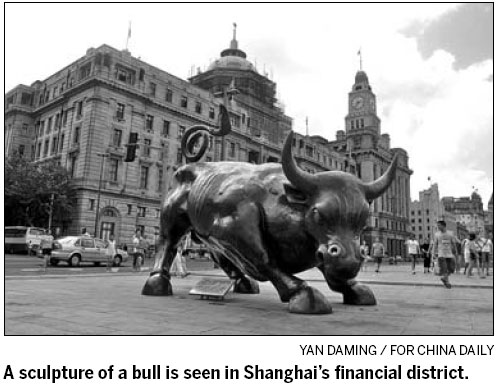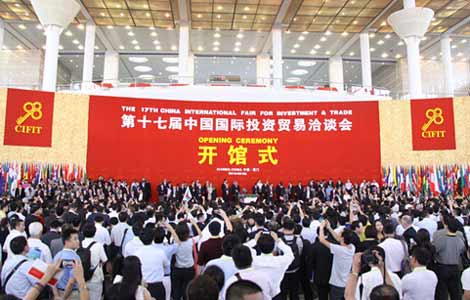PBOC head backs preferred shares
Updated: 2013-09-11 07:31
By Gao Changxin in Hong Kong (China Daily)
|
||||||||
People's Bank of China Governor Zhou Xiaochuan is expressing support for preferred-share issues, which offer a new method for the nation's listed companies - especially banks - to raise capital.
Zhou, head of the central bank, wrote in an article posted on the PBOC website on Monday that preferred shares are "an effective way for a company to raise funds without changing its ownership structure". Such issues "help add depth to China's capital market", he wrote.
Financial shares rallied on Monday after rumors about allowing banks to sell such shares surfaced during trading hours.
While common in developed markets, preferred shares are still a new concept in China's capital market. Preferred shares typically carry no voting rights, but they may be entitled to dividends. They also have priority over common stock in the payment of dividends and upon liquidation.

The specific conditions attached to preferred stocks are often negotiated between issuers and buyers.
Zhou wrote that the regulators have yet to approve preferred stocks because they don't want to "over-complicate a market that is still familiarizing itself with basic financial concepts".
Analysts said that preferred stocks are tailor-made for lenders in China, as funds raised through this method are counted as Tier 1 core capital, which is the primary measure of a bank's financial strength from a regulator's point of view.
At present, Chinese banks have two ways to replenish capital. First, they can issue common shares, which involve low financial costs but dilute ownership. Second, they can issue subordinated bonds. Such debt doesn't dilute ownership, but it increases financial costs, and only part of the proceeds can be counted as core capital.
"Issuing preferred stock effectively lowers the Tier 1 core capital requirement, and it eases pressure for lenders to issue common stock," China International Capital Corp said in a research note.
The China Banking Regulatory Commission requires lenders to have a Tier 1 core capital adequacy ratio of at least 7.5 percent, and a Tier 1 capital adequacy ratio of at least 8.5 percent. But many banks are struggling to reach those goals.
Chinese lenders also need a deeper capital base as they brace for fiercer competition amid interest-rate liberalization of deposit and lending rates.
gaochangxin@chinadaily.com.cn
(China Daily USA 09/11/2013 page13)
Most Viewed
Editor's Picks

|

|

|

|

|

|
Today's Top News
Companies to expand in Latin America
MIT ranks world's top university, PKU 46th
China's economy stable: Davos founder
Russia proposal likely to avert US air strikes
China's Hawaii goes fishing for talent
IPO to land deals in Hollywood
Timetable not set for Six-Party Talks
Li plots the economic course ahead
US Weekly

|

|














